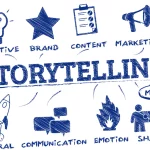Every day, we write, we speak, and we listen. But how good are we at these daily activities? How strong is your communication skill as a student? Do you speak just to hear your own opinions? Do you listen only to respond? Do you write only to show how smart you are? There’s a lot more to effective communication than throwing out information. Hence the importance of learning how to communicate better as a student in Nigeria.
Effective communication is fundamental for success in any aspect of life, including academics. The concept of modern education should revolve around equipping students with the necessary skills to thrive in any environment. But that’s not always the case, especially in developing countries like Nigeria. Therefore, it’s your duty to make a conscious effort to get better. And that’s why you’re here.
When you have effective communication skills as a student, it becomes easy to interact in whatever situation you may find yourself in. You become an icon of respect because you have enough self-confidence, and high self esteem. You also perform excellently in school and experience enhanced learning. If there’s any time to learn how to communicate better as a student, it’s Now.
Let’s get started.
Table of Contents
What is Communication for Students?
To improve your communication skills, you need to be aware of the different ways by which you exchange information. Communication for students usually involves 2 main categories: speaking and writing.
As a student, in terms of speaking, you’re either answering a question in class, asking a question, or making a presentation on a seminar paper or research experience. It also includes making personal or professional calls to pass out or receive information from the other end.
In terms of writing, it’s either exams, tests, assignments, term papers, or research articles. It also includes social media texting such as WhatsApp messages or email inquiries.
You need to realize just how much of your life is spent interacting with others. People around you hold the key to the several breakthroughs coming your way. If you don’t understand how to communicate better with them, you may be missing out on a lot of potential opportunities. The rest of this article covers how to get better at speaking and writing. Keep in mind that with speaking comes listening; and writing, reading.
Tips to Improve Spoken/Oral Communication Skills for Students
-
Assume a confident posture
This applies to presentation and other forms of face-to-face conversations. Whether you’re sitting or standing, the more space you take, the more confident you’re likely to feel. Before you start speaking, take your time (a few seconds or minutes) to find a stance that you find comfortable.
You can use the military chest-out, stomach-in method, keeping your legs and arms apart. You can sit cross-legged if you feel it’s appropriate for the gathering. The purpose of a comfortable stance is to allow you to focus on the actual speaking when you start. If you keep adjusting your posture as you speak, your audience is very likely to get distracted, and you don’t want that.
-
Smile
When it comes to enhancing your communication skill as a student, smilling comes in handy. Smiling is contagious; almost every time. Being a student is not an easy endeavour, and everyone knows that. That, however, is not enough reason to have an unpleasant countenance plastered on your face everywhere you go. When you smile, you invite people to pay attention to you. They get curious; feeling the need to know what’s so interesting about your topic of discussion. They want to know what’s keeping that smile plastered to your face.
Smiling also helps you feel good. It boosts your confidence which ultimately improves your communication skills.
-
Challenge yourself
Developing your communication skill as a student can be challenging at times. However, you can equally challenge yourself. As a student, the most feared kind of speaking is the public presentation. Nerves kick in, you start sweating, and your voice trembles. I’m sure you can relate to this experience. If you can’t, don’t worry, you’ll get there.
Don’t let that deter you though. Everybody is capable of public speaking; your confidence usually stems from who your audience is and the topic of conversation. To communicate better with spoken words, you need practice. Sometimes, that means putting yourself in positions that are scary, except that there’s no scoring sheet attached in the background. If you can manage the nerves in front of an unknown crowd, you’ll have a better chance in front of doctors and professors.
In other words, attend public speaking programs. Participate in activities that improve communication skills like debates and crowd coordination. When you’re on new territory, make a habit of approaching someone you find interesting, and trying to start a conversation. It might not always turn out well, but be rest assured that the more you try, the better you get.
-
Understand the language
This probably sounds weird. I’m not talking about learning dictionary words to impress your listeners. In fact, that’s even a terrible idea unless you’re talking to a group of linguists. And even with that, you need to understand the primary essence of communication is understanding.
Here’s what I mean: you know how punctuations in a written piece tell you when to pause and take a break? (Like how you did right now?) Well, you can incorporate that in speaking too. Pause to take a breath. Let your body gestures be in sync with your words. Don’t be in a hurry to finish. Just take your time.
-
Be audible
Have you ever greeted someone and they don’t respond? How did you react to that? You probably hissed and told yourself, “It’s not your fault. I’m the one that opened my mouth to greet you.”
Question for you: Have you ever stopped to consider that maybe, just maybe, they didn’t hear a word you said? The fact that you can hear yourself doesn’t mean that others can. Remember, even when you’re thinking, you can still hear yourself. Therefore, be certain that you’re very audible to your audience. Speak from your stomach, not your nose or your throat. Practice with a friend that can give honest and detailed feedback
This also applies to phone conversations. It is very essential in honing your communication skill. Whether you’re talking to a colleague or family or a lecturer, be sure that you’re really communicating. If you have to, especially with a lecturer, rehearse before calling them. You’ve got nothing to lose by preparing. It’ll even save you from possible embarrassment.
Bonus tip: Attend functions – online and offline and listen to people speak. You’ll learn plenty. Subscribe to our YouTube channel to listen to experts talk about being successful online. It’s a double-win for you.
Tips to Improve Written Communication Skills for Students
-
Use clear words
There’s always this temptation to sound intelligent while you write. Resist that urge to use vocabularies that your audience can’t comprehend. The purpose of writing is to speak to the reader, so make it easy for your reader to understand. Sometimes, complex or unpopular words will find their way in, and that’s not a problem. As long as you’re sure that it’s not an attempt to impress anybody, then you can leave it in. Let there be a takeaway from each paragraph you write. This is very important.
Also, for term papers and other research writing, don’t hesitate to use professional jargon. It’s necessary to show expertise and proof that you really did your research.
-
Spacing and organization
Spacing in writing is usually underestimated by some folks. Imagine this article was all packed together. No new paragraphs until the next item on the list.
Not attractive, right?
It’s the same for every other form of writing; text or social media messages included. If you can cultivate the habit of applying adequate spacing, it’ll be much easier to talk to anyone with written words. If it’s a term paper, you give your lecturer the power to skim through quickly, pick out important points, nod their heads and score you well.
You’ll agree with me that only a few lecturers actually read everything you’ve written in such a paper. So your goal should be that whatever page they open to, whatever paragraph they choose to read, they’ll find an important and relevant piece of information. It is one of the key factors in building your written communication skills.
You might be writing a cold email to a foreign lecturer for a scholarship opportunity, or you want to make an inquiry on a professional platform like LinkedIn. Remember these people don’t know you and are not obligated to give you anything, so you have to make it easy for them. Proper spacing and organization increases the chance that they’ll be willing to read through. Their minds naturally say to them, ‘hey, just see the point in each paragraph, it might be interesting”. Viola, you kill it with your written communication skill.
-
Edit thoroughly
One of the most important parts of writing is proofreading and editing. Proofreading involves skimming through your work to spot errors, omissions, and fluff (unnecessary stuff). Editing means correcting all the identified errors or blandness, without losing the meaning of the content. The flow goes from writing to proofreading to editing and finally to proofreading again. This goes a long way in making your message clear and more sophisticated.
This might not be applicable in exams and tests of course. At least, not to the point of being thorough. But you can try to avoid mistakes by being calm, understanding what you need to write and arranging the solutions in your head, before putting pen to paper. It is key to communicating your message easily.
-
Take your time to prepare
As the saying goes: If you fail to plan, you’re planning to fail. This is similar to rehearsing what you want to say before you make a phone call or stand on a podium. If you’re writing to someone, unsolicited, take your time to read and reread what you’ve written before hitting send. If you’re writing a paper, create an outline that you can follow. This helps you with subheadings and seamless flow.
Planning and preparation guarantee you a certain level of optimum content flow and presentation.
-
Read extensively
A writer is a reader; there are no shortcuts to it. Books (fiction and nonfiction), articles, research papers, newspapers, and just about anything readable, are applicable here. If you’re not a big fan of books, try social media posts, especially on Facebook. The goal here is to understand the style of writing. Ask yourself if you enjoyed what you read, and why you did.
Check for paragraphs and sentences that you think should be restructured. Don’t just read to get it over with. Pay attention to all the elements of the piece. The more you practice mindful reading, the better you become at communicating your message easily. You cannot underestimate the power of reading as a means to improve your vocabulary and communication skills.
Read also: Must-read books for self-development
A bonus tip for effectively improving your communication skills is to ask for help. Ask for feedback. Your friends, family, and some friendly lecturers can watch you speak or help proofread your written work, and give their opinion. Know that you don’t have to implement every suggestion they make. The purpose of this is to ascertain how well you’ve managed to pass your message. You can do that by scrutinizing the questions they asked, the suggestions, and the overall commentary.
Importance of Excellent Communication Skills for Students
Here are some inevitable advantages of effective communication and excellent communication skills for students:
-
Improved self confidence
Good knowledge of the language of communication as well as the topic of discussion gives you the confidence to participate adequately in the classroom. It also means that you feel comfortable talking to anyone regardless of their position in your life; lecturers, parents or your fellow students. When you have self-confidence and good communication skill as a student, there’s a short list of things that you won’t be able to accomplish in life.
Read also: How to build self-confidence as a Nigerian student
-
Improved social, physical and psychological health
All humans thrive on the ability to interact with their environment. As a student, once you’ve adopted some basic tips on how to communicate better, you’ll find that it’s easier for you to approach people and to be approached. You not only open yourself to opportunities, but also give others access to what you have to offer.
-
Improved academic performance
Your ability to communicate effectively means you can ask questions, answer questions, and pay close attention to any corrections. These skills alone are enough to take you from your current grade level to a better one. Because, no matter how harsh a lecturer or teacher might sound while answering your questions or correcting you, you’ll be sure that you’re not the problem. And you’ll be able to ask other knowledgeable people for help.
-
Better relationships
Effective communication is an interpersonal skill. That is, it serves you just as much as it serves your audience. Learning how to communicate better as a student strengthens your relationship with the people around you. A mixture of that and a certain degree of emotional intelligence, and you’ll become a role model to colleagues and some elderly ones.
Conclusion
Communication is a two-way street. You give and you take; it has to be both. Even when you write a paper or an exam, you’re expected to provide answers to questions while anticipating the way it would be received by the examiners. This is why some people always know when they have performed excellently, even before the results.
If you want to go places – and I believe that you do – learning how to improve your communication skills as a student goes a long way in your personal development journey. It is a continuous process, and an investment you’ll reap from, abundantly.
Did this feel like a conversation? I’d like to know if I took my own advice, so drop a comment. Will you?
Did you enjoy reading this? If you’re interested in practicing your written communications skills on social media, you should join our whatsapp community to have meaningful conversations with people of different backgrounds.
About Author
-
An experienced freelance SEO content writer and editor. She helps individuals and businesses communicate effectively with their audience and also improve their organic reach with relevant content.
She's an author of several short stories and a devoted lover of the paranormal and fantasy world. Asides business and lifestyle, she also writes about life science and technology.
Latest entries

 CampusMay 8, 2023A Simple and Thorough Guide to Writing an Academic CV (with an Editable Template)
CampusMay 8, 2023A Simple and Thorough Guide to Writing an Academic CV (with an Editable Template) Business InsightsMarch 26, 2023An Insightful Guide to Storytelling in Business Communication (for Business Owners and Content Creators)
Business InsightsMarch 26, 2023An Insightful Guide to Storytelling in Business Communication (for Business Owners and Content Creators)![Content Editing for SEO [A Full Guide to Edit Your Content for SEO] 14 content editing for SEO](https://insight.ng/wp-content/uploads/2022/10/Web-content-editing-150x150.png) Business InsightsOctober 23, 2022Content Editing for SEO [A Full Guide to Edit Your Content for SEO]
Business InsightsOctober 23, 2022Content Editing for SEO [A Full Guide to Edit Your Content for SEO]

